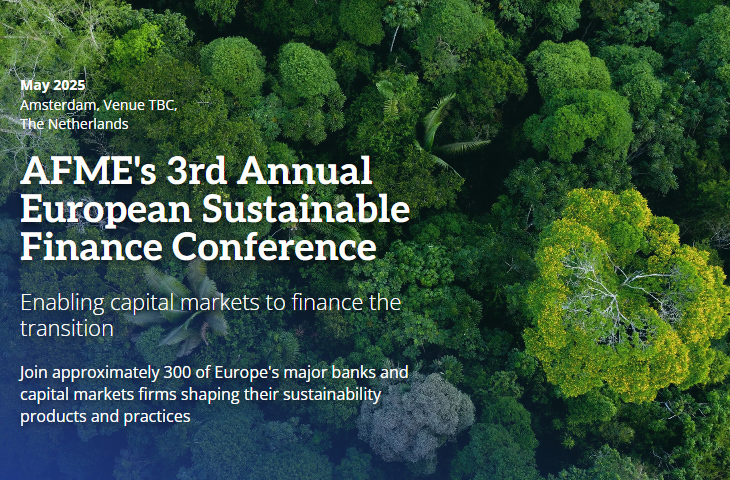A moment of reflections on Sustainable Investing

Appreciate the opportunity to have joined a panel discussion on mitigating greenwashing risks together with Evert van Walsum Celia Lambert-Alcantara Claude Brown at the AFME Sustainable Finance conference last week, but equally grateful to bring home plenty of reflections and inspiration from the others on topics that underpin the fundamental rationale for why we do sustainable investments and what has been working (and not working) thus far.
If long-term resilience is the end game, where is the tipping point? I felt a relief that there is an honest recognition of sustainable investing strategies returning “trade-off” in the short-term, but most remained convinced there is no trade-off in the long term if one holds beliefs in:
- “Huge systematic changes are ongoing”.
- Behavioural biases exist.
People may have an unhealthy dose of optimism/pessimism about short-term changes and not count the magnitude of long-term changes, as one speaker put it: “One may not be able to get out of the critical risks as we move closer to the future”. So, act now rather than later - a company can be wiped out if not ready early enough.
For long-term investors in particular - identifying the tipping point is key.
A need to refocus on what externalities (positive or negative) are (will be) priced by the market! Externalities not priced by the market are a partial reason for the ESG backlash witnessed so far. My speculation is that such failure may have been partly due to many investors' focus on irrelevant ESG data/info thus far. There is an increasingly overload of sustainability-related information out there, creating traps of data noises, making the "ESG alpha" creation process even more challenging. Overly reliant only on (historical, quantifiable) ESG data and let their investment decisions driven by a simple data mining exercise is not really efficient. E.g. comparison of data face value without seeing nuances, or seeing only the trees not the forest - judge single companies without understanding of the industry value chain dynamics. Therefore, the combination of conventional investment thinking and a deep sustainability understanding is the only way out as I can see.
The need for Transition Finance is already a consensus now, while eligibility criteria remain unclear, how to navigate? In my impact-focused strategy practice, I found "impact" and "transition" to be inseparable already from day one, thus I have never felt any fear to arguing for a 'transitional case' whenever I could justify "intentionality", "materiality", "measurability", "accountability" and "additionality" well inter-played.
Being a practitioner myself, I also happily find that material forward-looking indicators of future transition guidelines will be at the core. Investors are better off to focus on figuring out the real linkage between corporates' strategies and underlying transition needs or ambitions and disregarding pretty much the rest - info/data noises around their sustainability communications.
What capital allocation decisions are companies making about "transition" (e.g. capex, R&D - both numbers can be audited so highly reliable!)? What do these decisions mean in terms of real-world impact and financials both near and long-term for the company? Whether these decisions will be well executed, including factors beyond a single company's control such as supply chain readiness, technical limitations and even just the limitation of our capabilities to judge the future! Don't forget that most people still rely on a mean-based scenario of the whole climate change thinking or decision-making, without factoring in any tail-risks!
Sustainability communicating, not just knowing. Are your end-customers comfortable with potential short-term trade-offs despite them being convinced for the long term? Make sure to communicate correctly and set the right expectations. Even more importantly, communicate well internally in an organization. A company can have a very capable sustainability/ESG team, but still falters if this know-how ends up in a silo instead of being understood throughout the organization. People, get out of your finance bubble! People, get out of your sustainability bubble!
A big thank you all for the discussions and inspirations shared! Peter Mennie Caroline Haas Randy Caenen Eugenia Unanyants-Jackson Helena Viñes Fiestas Justin Kew, CFA Veronique Chapplow Evan Tylenda, CFA Luz Martinez Mikael Down Emily A. Chien Ben Constable Maxwell . And thank you Mike Jeapes for having me on board to this forum! East Capital Group #AFME_SF





